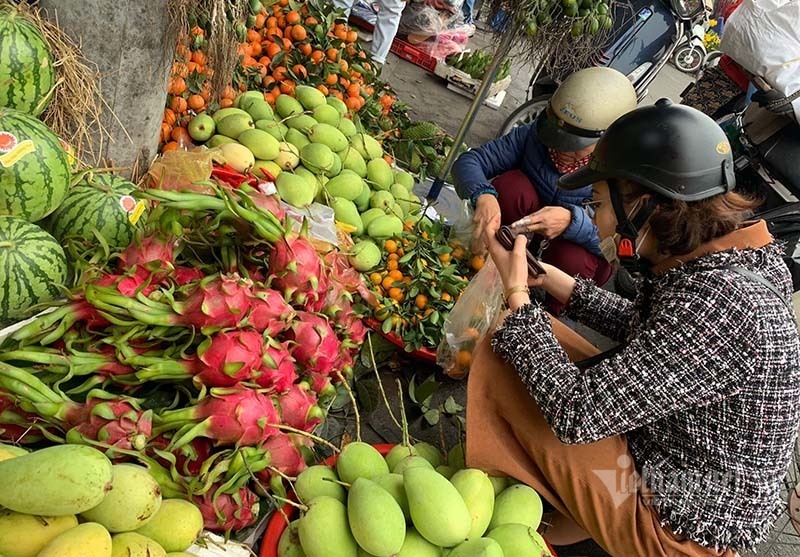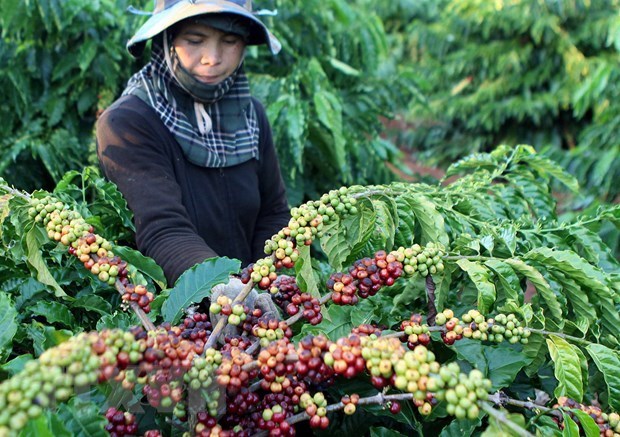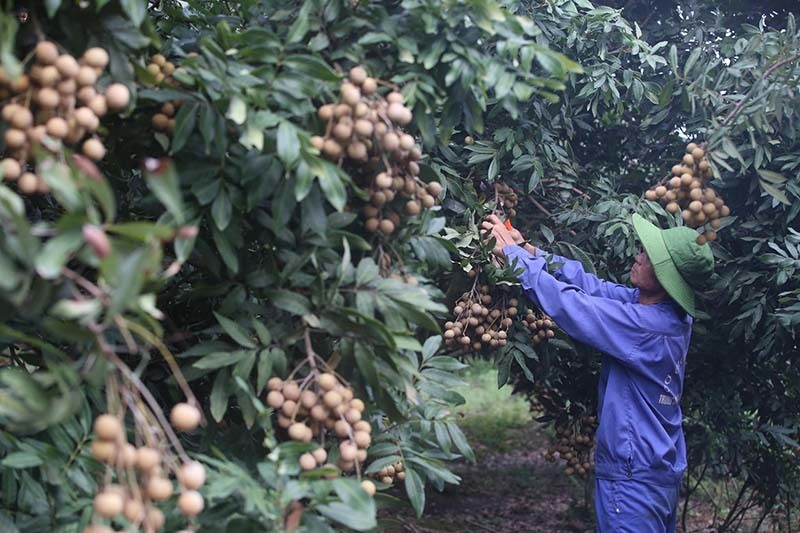- © Copyright of Vietnamnet Global.
- Tel: 024 3772 7988 Fax: (024) 37722734
- Email: evnn@vietnamnet.vn
chinese market
Update news chinese market
Imports flood fruit market, domestic fruit now dirt-cheap
Fruit exports have sharply decreased in number, while imports have soared. Farmers are now finding it difficult to sell products.
VN firms struggle as China lockdowns disrupt supply chains
Vietnamese businesses are finding it difficult to cope with supply chain breakages as a result of China enforcing strict COVID-19 lockdown policies to curb recent outbreaks.
Shortage of material imports from China slows order growth
The rise in new orders has been slower as some customers have been deterred by sharp price rises, in addition to difficulties in buying materials from China which is imposing stringent Covid-19 restrictions.
Growing and chopping down crops: nightmare for farmers
Farmers have had a bumper fruit crop this year, but they are unhappy as prices are sliding dramatically.
Many batches of seafood exports to China returned
Up to 52 batches of seafood exported to China by 36 Vietnamese enterprises were found carrying the SARS-CoV-2 virus and returned, according to the National Agro-Forestry-Fisheries Quality Assurance Department (Nafiqad).
Agriculture ministry develops project to boost exports to China
A radical solution to prevent farm produce truck congestion at border gates requires understanding the Chinese market well and creating a specific project on boosting exports to China.
1.4 million tons of ‘super food’ sells for only VND3,000 per kilo
In some European countries, dragonfruit is considered ‘super food’, priced at VND650,000 per kilogram. Vietnam has 1.4 million tons of the fruit each year and farmers sell it at only VND3,000 per kilogram.
Why is the Chinese market still vital to farm exporters?
Over the past few years, the export of farm produce to China has constantly been running into trouble, especially with the congestion of trucks at the northern border gates in December 2021.
Over 1,600 Vietnamese products licensed for export to China
The General Administration of Customs of China (GACC) on February 11 morning issued 1,601 codes for Vietnamese agricultural and food products serving their exports to the Chinese market.
Vietnam ought to improve fruit quality for exports
The export value of vegetables and fruits reached at US$3.2 billion in 2020 and fruits account for 80 percent of export turnover.
Mango exports: Cambodia has become Vietnam’s rival in the Chinese market
Cambodia has obtained the go-ahead to export mangoes to China, becoming a new rival for Vietnam in the 1.4 billion consumer market.
China benefits the most from Vietnam’s trade surplus
Vietnam has joined many multilateral and bilateral trade agreements in recent years. The question is what the country receives from these trade relations.
Minister proposes export of passion fruit, sweet potato to China
Minister of Agriculture and Rural Development Nguyen Xuan Cuong has offered a variety of high-quality farm produce to China. He hopes Vietnam can boost exports through official ways to China in the time to come.
Farm produce deficiency in China offers opportunity for Vietnamese exports
Northern farmers have been advised to increase the winter crop growing area and increase exports to China, in anticipation of a farm produce shortage there caused by severe floods.
Fruit prices in traditional markets plummet as exports remain stuck
The loyal Chinese market has restricted the import of Vietnam’s fruits, while exports to the US are stuck because of Covid-19.
Even with EVFTA, Vietnamese fruit still relies on Chinese market
 Vietnamese fruit exporters have been trying to stop their reliance on China, but no progress has been made in finding new markets.
Vietnamese fruit exporters have been trying to stop their reliance on China, but no progress has been made in finding new markets.
China changes policy, buys Vietnam’s rice
 Previously, China imported rice in small quantities from Vietnam, but the country has recently increased imports from Vietnam and accepted higher prices.
Previously, China imported rice in small quantities from Vietnam, but the country has recently increased imports from Vietnam and accepted higher prices.
Where will FDI head after leaving China?
 Foreign investors are considering relocating their production bases out of China, and many of them are heading for Vietnam.
Foreign investors are considering relocating their production bases out of China, and many of them are heading for Vietnam.
VN Trade Ministry considers selling farm produce online to China
 The Ministry of Industry and Trade (MOIT), in an effort to rescue Vietnam’s farm produce, has decided to organize online trade between Vietnamese sellers and Chinese businesses.
The Ministry of Industry and Trade (MOIT), in an effort to rescue Vietnam’s farm produce, has decided to organize online trade between Vietnamese sellers and Chinese businesses.
Vietnamese enterprises add jobs as Chinese supplies to int'l buyers are interrupted
 International manufacturers are seeking component suppliers in Vietnam, considering Vietnam as an alternative market in the context of Covid-19 escalation.
International manufacturers are seeking component suppliers in Vietnam, considering Vietnam as an alternative market in the context of Covid-19 escalation.



















